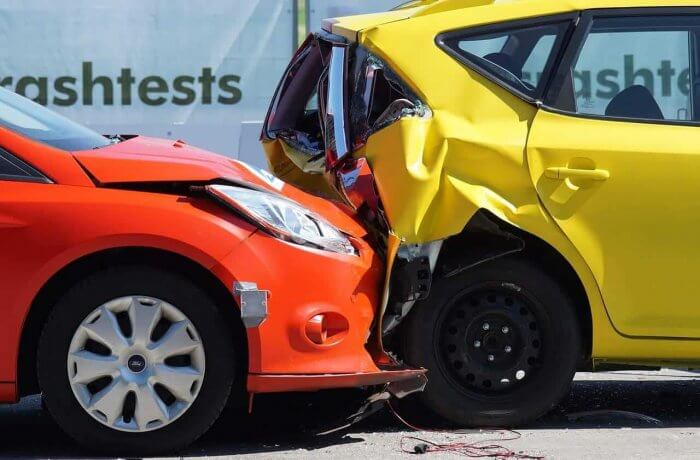Causing Death by Dangerous Driving
You can ask our solicitors for advice on causing death by dangerous driving using the question box on the front of our website or the following article may answer your questions.
One of the most serious offences when it comes to the roads is causing death by dangerous driving. The penalties for this offence can be significant, often resulting in disqualification from driving, a prison sentence and a substantial fine.
The Law and Dangerous Driving
The Road Traffic Act 1988 sets out specific legislation that relates to the act of dangerous driving. It is defined as an individual who causes the death of another by driving a vehicle in a dangerous manner on a road or in a public place can be found guilty of an offence of dangerous driving.
When evaluating the seriousness of a crime, consideration will be given to the level of blame that can be placed on the suspect. In assessing each case, the court will undertake a detailed review into the dangers of the driving, how the individual failed to exercise competency and the driver compromised the safety of other road users.
If an individual is to be found guilty of causing death by dangerous driving, the court must be satisfied that sufficient evidence has been provided that confirms the drivers actions were dangerous and this resulted in a fatality.
Dangerous driving is behaviour that fails to meet the required standards expected of a reasonably competent driver. Therefore, any driving that presents a risk to the safety of other individuals or property is classed as dangerous. Dangerous driving can be identified as:
- Racing or driving too fast on a public road
- Failing to observe road signs, warning signs or traffic lights
- Overtaking without the necessary care and attention
- Driving while unfit in a physical or medical sense
- Driving while distracted such as using a mobile phone when driving
Establishing Guilt
If an offender is convicted of death by dangerous driving the case must successfully prove that the driver caused the fatality through inadequate standards of driving. If there were multiple incidents that led up to the death, this can result in greater challenges when it comes to proving guilt.
As an example, if there were several vehicles involved in the collision, the first driver may not be responsible for the death, but the collision may result in a more serious sequence of events that led to the death.
Sentencing
When reviewing the case, the judge will determine the most appropriate sentence for the offender depending on the specifics of the incident and the drivers actions. A number of factors will be considered including:
- Whether the defendant has any previous convictions
- If the driver was under the influence of alcohol or drugs at the time the offence was committed
- If the defendant knew the victim
- If any other crimes were committed at the same time as the dangerous driving such as driving a stolen vehicle
- The personal character of the individual and other circumstances which may be relevant to the case
When dealing with a death by dangerous driving case, the courts will have a lot of information to review as they are particularly complex. The case will need to be supported with a series of evidence statements and expert witness accounts.
All of this information will be taken into consideration by the judge as they consider the case in addition to looking carefully at the behaviour and actions of the driver at the time of the incident. This may also include how cooperative the individual was at the time of the incident, whether they volunteered information and how they behaved throughout the trial.
Penalties
When an offender is convicted of dangerous driving, but where they have not caused the death of another, typical penalties could include:
- A period in prison of up to 14 years
- Mandatory requirement to retake a driving test
- Disqualification from driving for a minimum period of two years
Where a death is caused by dangerous driving, penalties can be much more severe and will depend on the poor driving and level of neglect that the driver exercised at the time. Life in prison is the maximum penalty for those who are found guilty of death by dangerous driving.
Inconsiderate or Careless Driving
There may be times when an individual causes the death of another but rather than the driving being dangerous, they may be driving carelessly or inconsiderately. Within the scope of the law, careless or inconsiderate driving is defined as a standard of driving that falls well below that which is expected from a competent driver.
In some cases, the death of a road user or pedestrian may be caused by failures on the part of the driver. There is a fine line in the difference between dangerous and careless driving, so it can be difficult to identify which offence has been committed.
There are many actions that can be used to describe careless driving, from operating a satellite navigation system or adjusting the radio while driving or failing to maintain the required level of attention while driving. Other actions that may be classed as careless driving include:
- Undertaking another vehicle
- Tailgating or driving too close to another vehicle
- Driving through a red light in error
Inconsiderate driving on the other hand is used to describe a situation where you fail to show the required level of care and attention to other road users such as:
- Using lanes incorrectly to get ahead in the traffic
- Forcing other drivers to act in a specific way as a result of seeing a driver angrily flashing lights
- Staying in an overtaking lane for longer than necessary
Penalties for Careless or Inconsiderate Driving that Results in a Death
If an individual is convicted of causing death by inconsiderate or careless driving, they may be subject to any of the following penalties:
- A prison sentence up to a maximum of five years
- A compulsory disqualification from driving for at least a year
- An obligation to retake their driving test
Being accused of death by dangerous driving
If you have been involved in a death by dangerous driving offence, it is crucial that you seek legal advice from an experienced solicitor. In this case, the police may issue a caution, arrest you or ask you to attend the police station to participate in a voluntary interview. If they ask you to attend, it is important that you seek legal advice.
A suitably qualified and experienced criminal lawyer will be able to guide you through the case and provide information on the expected next steps. The solicitor will provide you with detailed advice on what information you must provide as part of the investigation and how the case will proceed.
The sooner you consult a solicitor the better as they can help you reach the best outcome. It’s also important that you are fully cooperative throughout with both your solicitor and police.


